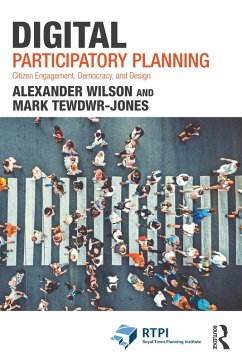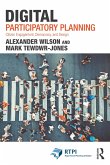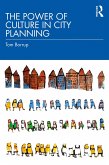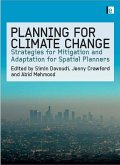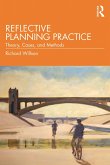Dieser Download kann aus rechtlichen Gründen nur mit Rechnungsadresse in A, B, BG, CY, CZ, D, DK, EW, E, FIN, F, GR, HR, H, IRL, I, LT, L, LR, M, NL, PL, P, R, S, SLO, SK ausgeliefert werden.
"Digital Participatory Planning focuses on the role technology can play in supporting effective planning. While the actual technologies, platforms and systems discussed will evolve and new technologies will come into play, the important contribution this book makes is to shine a light on to these emerging methods and processes. The book will be an important resource for those who practice urban, regional, and spatial planning, but also those involved in any forms of 'planning' that require public engagement, including large scale infrastructure projects." Richard Kingston, University of Manchester, UK
"Digital Participatory Planning is at the forefront of debate in the discipline. This is particularly so in the UK where current proposals could see the entire English planning system move consultation online. Yet, the authors are correct that this is a little understood debate, and much literature on this subject currently focuses on 'efficiencies' in a rather clinical way, rather than the spaces and places in which normal people live. This book addresses the gap in this thinking, and it is much needed." Alexander Nurse, University of Liverpool, UK
"Digital Participatory Planning focuses on the role technology can play in supporting effective planning. While the actual technologies, platforms and systems discussed will evolve and new technologies will come into play, the important contribution this book makes is to shine a light on to these emerging methods and processes. The book will be an important resource for those who practice urban, regional, and spatial planning, but also those involved in any forms of 'planning' that require public engagement, including large scale infrastructure projects." Richard Kingston, University of Manchester, UK
"Digital Participatory Planning is at the forefront of debate in the discipline. This is particularly so in the UK where current proposals could see the entire English planning system move consultation online. Yet, the authors are correct that this is a little understood debate, and much literature on this subject currently focuses on 'efficiencies' in a rather clinical way, rather than the spaces and places in which normal people live. This book addresses the gap in this thinking, and it is much needed." Alexander Nurse, University of Liverpool, UK

